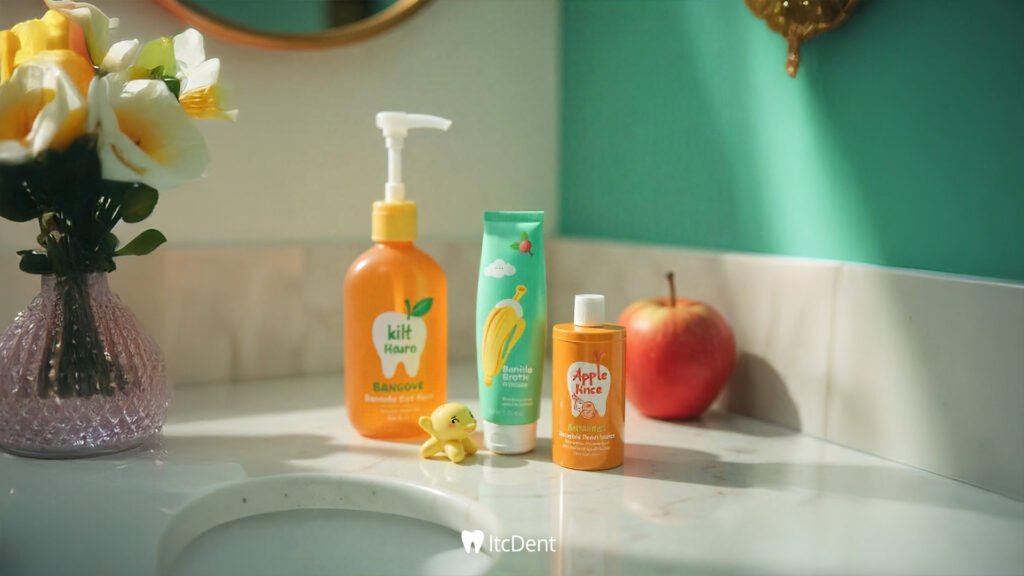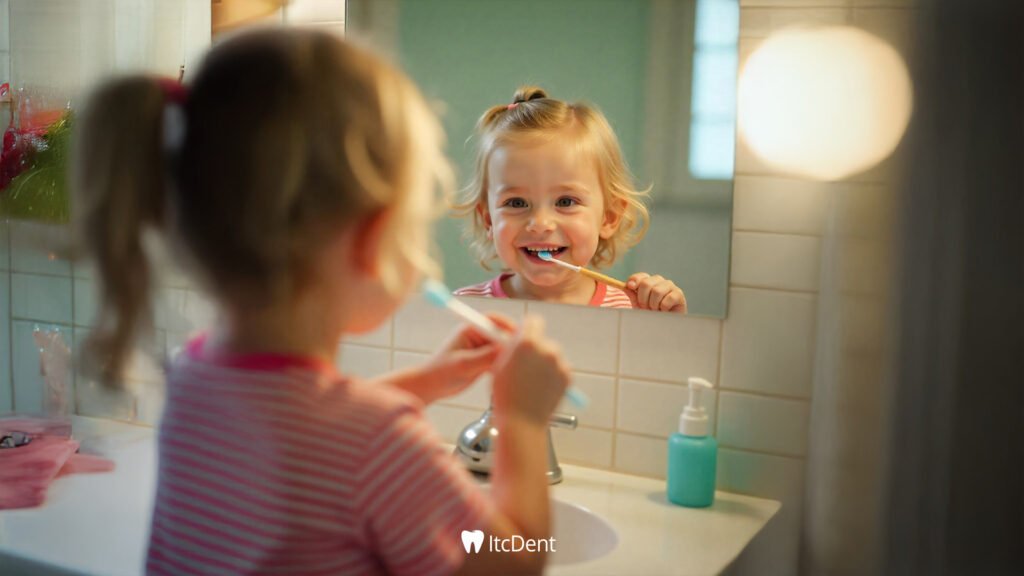
10 Tips for Children’s Dental Health
Children’s healthy growth and development is not limited to physical and mental health; oral and dental health is also an integral part of this process. Healthy teeth are not only the key to an aesthetic smile, but also play a critical role in chewing, speaking and overall quality of life. Proper oral care habits acquired at an early age can largely prevent tooth decay, gum disease and other oral health problems that may occur in later years.
Therefore, it is extremely important for parents to be conscious and careful about their children’s dental health. In this article, we will share with you 10 applicable and effective suggestions for protecting children’s oral and dental health. Remember, a healthy smile is the harbinger of a healthy future.
Teach How to Brush Your Teeth at an Early Age
The foundations of dental health should be laid in infancy. The cleaning process should begin as soon as the first baby tooth appears in the mouth. During this period, teeth can be cleaned gently with finger brushes or a sterile, soft cloth. This practice both keeps the gums healthy and makes it easier for the child to get used to oral care.
When the child reaches the age of 2-3, the oral care routine should be made more regular. During this period, a specially designed, small-headed, soft-bristled toothbrush should be used for children; the habit of brushing teeth at least twice a day, morning and evening, should be acquired. Products containing fluoride and in an age-appropriate amount (about the size of a lentil) should be preferred as toothpaste.

Develop Healthy Eating Habits
One of the most effective ways to protect children’s dental health is to provide them with proper and balanced eating habits at an early age. Foods and drinks consumed directly affect the structure of the teeth. Foods with high sugar content, in particular, can damage children’s sensitive tooth enamel and accelerate the formation of cavities.
Sugary and acidic foods such as sticky candies, caramel products, wafers and fizzy drinks; create a long-lasting layer in the mouth, causing bacteria to produce acid. These acids erode tooth enamel over time, paving the way for cavities. Therefore, the consumption of such foods should be limited, and when consumed, oral hygiene should be taken into account.
It is very important to provide children with foods that both support dental health and contribute to their general development. Fresh fruits and vegetables, in particular, help to mechanically clean teeth thanks to their fibrous structure. Dairy products rich in calcium, such as milk, yogurt and cheese, help to strengthen teeth. In addition, the habit of drinking water should be encouraged; water helps prevent tooth decay by neutralizing sugar and acids in the mouth.
If children are to be given sugary snacks from time to time, it is better to consume these products with meals because the amount of saliva produced in the mouth increases during meals, thus reducing the effect of harmful acids. They should definitely be provided with water after snacking, and if possible, they should be directed to brush their teeth as soon as possible.
Choose the Right Toothpaste
Choosing the right products is as important as providing effective cleaning for children’s oral and dental health. In particular, toothpaste selection should be appropriate for the child’s age and development level. Toothpastes produced for adults are not suitable for young children due to the high fluoride content and some active ingredients they contain. For this reason, toothpastes specially formulated for children should be preferred.
Toothpastes produced for children are both safer in terms of fluoride content and generally have softer and more pleasant aromas. Thanks to these features, it is easier for children to love brushing their teeth and acquire this habit more willingly. However, since not every product for children is safe, content control should be performed; if possible, products that do not contain colorants, artificial sweeteners or harmful chemicals should be preferred.

Get Regular Dentist Checkups
The first dental checkup should usually be done after the first tooth appears or at the latest by the age of 1. Afterwards, regular dental checkups should be performed every 6 months. These checkups ensure that any cavities that may occur are diagnosed early and that the necessary precautions are taken in a timely manner.
Pay Attention to Nighttime Feeding
Especially during infancy, milk or fruit juice given before bedtime causes the teeth to come into contact with sugary liquids for a long time. This can lead to early childhood cavities known as “baby bottle tooth decay”. After nighttime feeding, the mouth should definitely be cleaned and if necessary, only water should be given.
Pay Attention to the Duration and Method of Brushing Your Teeth
Brushing your teeth should be at least 2 minutes. Children usually keep this time short, so timers or fun tooth brushing songs can be used. In addition, care should be taken to brush all surfaces of the teeth with circular movements. Parents should make sure that children brush correctly.
Make Flossing a Habit
Around the age of 6, when the gaps between children’s teeth decrease, flossing becomes important. Floss prevents cavities by cleaning plaque in places where the brush cannot reach. This process, which is initially done with the help of a parent, can turn into a habit that the child can apply on his own over time.

Use a Mouth Guard
Children are at risk of damaging their teeth while playing sports. Using a mouth guard, especially in contact activities such as football, basketball, and combat sports, prevents tooth fractures and trauma. Special guards made by dentists are both more comfortable and more effective.
Motivate with Rewards
While helping children develop the habit of brushing their teeth, it can be beneficial to make this process fun and rewarding. For example, giving them a sticker after each successful brushing or creating a weekly chart will attract their attention. The important thing is that this habit is not an obligation, but rather adopted as a natural part of life.
Prevent Bad Habits
Habits such as thumb sucking, prolonged pacifier use, or nail biting can damage the structure of the teeth. Noticing and preventing these behaviors at an early stage prevents orthodontic problems that may occur in the future. If you notice any irregularities in your child’s oral structure, it would be beneficial to consult an orthodontist.

